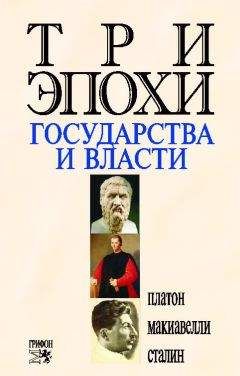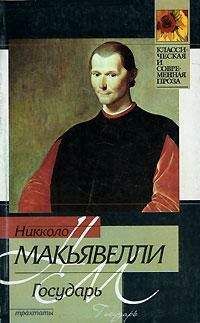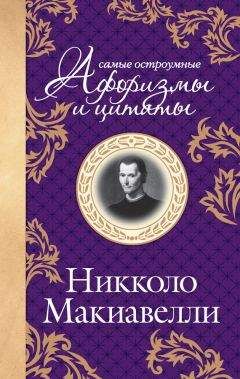Эдгар По - Английский с Эдгаром По. Падение дома Ашеров / Edgar Allan Poe. The Fall of the House of Usher
Horror and fatality have been stalking abroad in all ages. Why then give a date to this story I have to tell? Let it suffice to say, that at the period of which I speak, there existed, in the interior of Hungary, a settled although hidden belief in the doctrines of the Metempsychosis. Of the doctrines themselves – that is, of their falsity, or of their probability – I say nothing. I assert, however, that much of our incredulity – as La Bruyère says of all our unhappiness – “vient de ne pouvoir être seuls.”
But there are some points in the Hungarian superstition (но есть некоторые моменты: «пункты» в венгерских верованиях) which were fast verging to absurdity (которые непосредственно: «прочно» граничили с абсурдностью; fast – быстро; прочно; verge – край, грань; to verge – граничить). They – the Hungarians – differed very essentially from their Eastern authorities (они, венгры, отличались весьма существенно от своих восточных властителей). For example, “The soul,” said the former (например, душа, – говорили эти первые) – I give the words of an acute and intelligent Parisian (я передаю слова одного проницательного и умного парижанина) – “ne demeure qu’une seule fois dans un corps sensible: au reste – un cheval, un chien, un homme même, n’est que la ressemblance peu tangible de ces animaux («живет лишь один раз в чувствующем теле, в остальном же – лошадь, собака, даже человек – суть лишь мало осязаемое подобие этих животных» – фр.).”
But there are some points in the Hungarian superstition which were fast verging to absurdity. They – the Hungarians – differed very essentially from their Eastern authorities. For example, “The soul,” said the former – I give the words of an acute and intelligent Parisian – “ne demeure qu’une seule fois dans un corps sensible: au reste – un cheval, un chien, un homme même, n’est que la ressemblance peu tangible de ces animaux.”
The families of Berlifitzing and Metzengerstein had been at variance for centuries (семьи Берлифитцинг и Метценгерштейн были в ссоре не одно столетие; variance – разногласие, размолвка, ссора; century – век). Never before were two houses so illustrious (никогда прежде не были два дома столь блестящие), mutually embittered by hostility so deadly (взаимно растравляемы враждой столь смертельной). The origin of this enmity seems to be found in the words of an ancient prophecy (корень этой распри, кажется, кроется в словах старинного пророчества: «кажется быть найденным»; to seem – казаться; to find – найти) – “A lofty name shall have a fearful fall when, as the rider over his horse (высокое имя возымеет страшное падение = падет, когда, подобно всаднику над его конем), the mortality of Metzengerstein shall triumph over the immortality of Berlifitzing (смертность Метценгерштейна восторжествует над бессмертием Берлифитцинга).”
The families of Berlifitzing and Metzengerstein had been at variance for centuries. Never before were two houses so illustrious, mutually embittered by hostility so deadly. The origin of this enmity seems to be found in the words of an ancient prophecy – “A lofty name shall have a fearful fall when, as the rider over his horse, the mortality of Metzengerstein shall triumph over the immortality of Berlifitzing.”
To be sure the words themselves had little or no meaning (конечно, сами эти слова имели значения мало или вовсе никакого; to be sure – конечно: «быть уверенным»; little – мало; no – нисколько, никакой). But more trivial causes have given rise – and that no long while ago – to consequences equally eventful (но и более тривиальные причины давали начало – и не так уж давно – последствиям столь же важным: «богатыми событиями»; rise – подъем; начало). Besides, the estates, which were contiguous (кроме того, /их/ усадьбы, которые были граничащими /друг с другом/), had long exercised a rival influence in the affairs of a busy government (давно оказывали соперничающее влияние на дела хлопотливого правительства). Moreover, near neighbors are seldom friends (к тому же близкие соседи – редко друзья); and the inhabitants of the Castle Berlifitzing might look, from their lofty buttresses, into the very windows of the palace Metzengerstein (а обитатели замка Берлифитцинг могли заглядывать со своих высоких контрфорсов в самые окна дворца Метценгерштейн). Least of all had the more than feudal magnificence, thus discovered, a tendency (более чем феодальное великолепие, таким образом открытое, менее всего имело тенденцию; least of all – менее всего) to allay the irritable feelings of the less ancient and less wealthy Berlifitzings (успокаивать раздражительные чувства менее древних и менее богатых Берлифитцингов).
To be sure the words themselves had little or no meaning. But more trivial causes have given rise – and that no long while ago – to consequences equally eventful. Besides, the estates, which were contiguous, had long exercised a rival influence in the affairs of a busy government. Moreover, near neighbors are seldom friends; and the inhabitants of the Castle Berlifitzing might look, from their lofty buttresses, into the very windows of the palace Metzengerstein. Least of all had the more than feudal magnificence, thus discovered, a tendency to allay the irritable feelings of the less ancient and less wealthy Berlifitzings.
What wonder then, that the words, however silly, of that prediction (какое же удивление тогда = что же тогда удивляться, что слова, хотя бы и глупые, этого пророчества; however – зд.: какие бы ни…), should have succeeded in setting and keeping at variance two families (преуспели в том, чтобы посеять и укрепить вражду между двумя семьями: «в том, чтобы установить и сохранить во вражде две семьи») already predisposed to quarrel by every instigation of hereditary jealousy (уже предрасположенными к распре каждым побуждением наследной зависти)? The prophecy seemed to imply (это пророчество, казалось, означало: «казалось означать») – if it implied anything (если оно означало что бы то ни было) – a final triumph on the part of the already more powerful house (конечное торжество на стороне: «части» уже более могущественного дома); and was of course remembered with the more bitter animosity by the weaker and less influential (и было, конечно, вспоминаемо с тем большей злобой более слабым и менее влиятельным /домом/).
What wonder then, that the words, however silly, of that prediction, should have succeeded in setting and keeping at variance two families already predisposed to quarrel by every instigation of hereditary jealousy? The prophecy seemed to imply – if it implied anything – a final triumph on the part of the already more powerful house; and was of course remembered with the more bitter animosity by the weaker and less influential.
Wilhelm, Count Berlifitzing, although loftily descended (Вильгельм, граф Берлифитцинг, хотя и высокого происхождения: «возвышенно происходящий»; to descend – спускаться; происходить; передаваться по наследству), was, at the epoch of this narrative, an infirm and doting old man (был во время настоящего повествования немощным и впавшим в слабоумие стариком), remarkable for nothing (ничем не замечательным) but an inordinate and inveterate personal antipathy to the family of his rival (кроме непомерной и глубоко укоренившейся личной антипатии к семье своего соперника), and so passionate a love of horses, and of hunting (и столь страстной любви к лошадям и к охоте), that neither bodily infirmity, great age, nor mental incapacity, prevented his daily participation in the dangers of the chase (что ни телесная слабость /либо/ внушительный возраст, ни умственная немощь не препятствовали его ежедневному участию в опасностях охоты; chase – погоня; преследование; охота).
Wilhelm, Count Berlifitzing, although loftily descended, was, at the epoch of this narrative, an infirm and doting old man, remarkable for nothing but an inordinate and inveterate personal antipathy to the family of his rival, and so passionate a love of horses, and of hunting, that neither bodily infirmity, great age, nor mental incapacity, prevented his daily participation in the dangers of the chase.
Frederick, Baron Metzengerstein, was, on the other hand, not yet of age (Фредерик, барон Метценгерштейн, был, с другой стороны: «на другой руке», еще не совершеннолетний; age – возраст; of age – совершеннолетний). His father, the Minister G—, died young (его отец, министр Г., умер молодым). His mother, the Lady Mary, followed him quickly after (его мать, госпожа Мэри, последовала за ним вскоре после /того/). Frederick was, at that time, in his fifteenth year (Фредерик был в то время на пятнадцатом году /жизни/). In a city, fifteen years are no long period (в городе пятнадцать лет – недлинный период) – a child may be still a child in his third lustrum (ребенок может быть все еще ребенком в свое третье пятилетие): but in a wilderness – in so magnificent a wilderness as that old principality (но в глуши – в столь великолепной глуши, как это древнее княжество), fifteen years have a far deeper meaning (пятнадцать лет имеют гораздо: «далеко» более глубокое значение).
Frederick, Baron Metzengerstein, was, on the other hand, not yet of age. His father, the Minister G—, died young. His mother, the Lady Mary, followed him quickly after. Frederick was, at that time, in his fifteenth year. In a city, fifteen years are no long period – a child may be still a child in his third lustrum: but in a wilderness – in so magnificent a wilderness as that old principality, fifteen years have a far deeper meaning.
From some peculiar circumstances attending the administration of his father (от = из-за некоторых особенных обстоятельств, сопровождавших ведение дел его отца), the young Baron, at the decease of the former (юный барон при кончине первого = отца), entered immediately upon his vast possessions (вступил немедленно во /владение/ своими обширными поместьями; possession – владение; имущество). Such estates were seldom held before by a nobleman of Hungary (такие поместья редко принадлежали прежде дворянину из Венгрии: «были редко держимы»; to hold – держать). His castles were without number (его замки были без числа = многочисленны). The chief in point of splendor and extent was the “Château Metzengerstein (главный /из них/ в смысле великолепия и размера был замок Метценгерштейн; point – пункт; смысл; вопрос, дело; chateau /фр./ – замок).” The boundary line of his dominions was never clearly defined (пограничная линия его земель никогда не была ясно определена); but his principal park embraced a circuit of fifty miles (но его главный парк описывал окружность в пятьдесят миль; to embrace – обнимать; охватывать).




